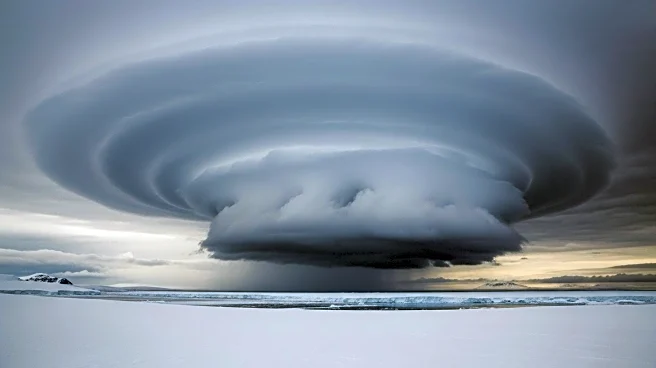What is the story about?
What's Happening?
Since early September, temperatures in the atmosphere above Antarctica have surged by over 35°C (63°F), accompanied by a halving of wind speeds and a sudden halt in ozone depletion. Such atmospheric upheavals are typically rare, occurring once every 20 years, but recent events suggest increasing frequency. Martin Jucker from the University of New South Wales notes that these changes indicate significant shifts in the global climate system. The polar vortex's wind speeds have dropped, and meteorologists warn of potential weather disruptions across the southern hemisphere, including warmer and drier conditions in Australia.
Why It's Important?
The unusual atmospheric conditions in Antarctica could have far-reaching implications for global climate patterns. The potential for altered weather conditions in the southern hemisphere may affect agriculture, water resources, and ecosystems. The situation underscores the broader impact of climate change, with rising sea surface temperatures likely contributing to these anomalies. The scientific community is concerned about the cascading effects on Antarctic environments, including sea ice loss and changes in ocean circulation, which could further exacerbate global climate challenges.
What's Next?
Meteorologists and climate scientists will continue to monitor the situation, with potential adjustments to weather forecasts and climate models. Research into the causes and consequences of these atmospheric changes may be intensified, focusing on the role of sea surface temperatures and other climate variables. Policymakers may be prompted to consider more aggressive climate action to mitigate the impacts of such disruptions.
Beyond the Headlines
The atmospheric chaos in Antarctica highlights the interconnectedness of global climate systems and the potential for unexpected consequences. It raises questions about the resilience of ecosystems and human societies in the face of rapid environmental changes, emphasizing the need for adaptive strategies and international cooperation.















